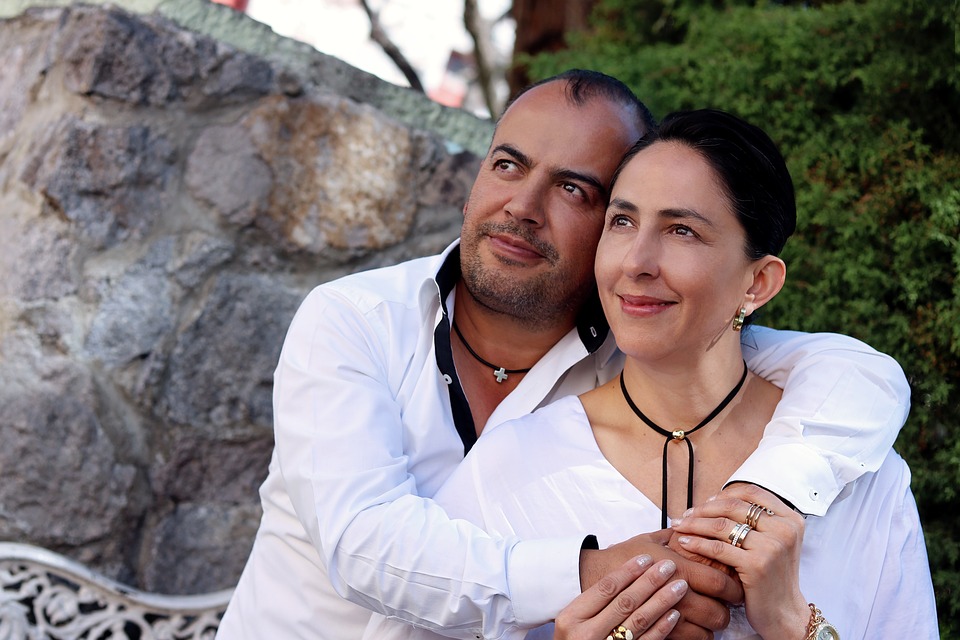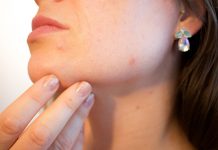Menopause can be a particularly chaotic and confusing time for women. After decades with a fairly regular body clock, suddenly it can feel like all systems go haywire!
In place of regular menstrual cycles, you begin to experiencing night sweats, daytime hot flashes, spotting and a return of what often feels like an intensely unfair reprise of your teenage acne.
The truth is, what is normal during menopause can feel intensely abnormal at first. This article talks about major menopause symptoms in the context of the four major physical changes during menopause.
“Hot flashes can happen during the day or at night, when they are often called “night sweats”
1. Hot Flashes
We have all seen women who, while standing in line at the grocery store or the bank, suddenly start fanning themselves furiously – even if it is cold inside! What is going on?
This is commonly known as “hot flashes” and it is one of the better known menopause symptoms. Hot flashes can happen during the day or at night, when they are often called “night sweats.”
Hot flashes occur in a stage of menopause called perimenopause. Changing hormone levels, particularly with estrogen, trigger a sudden increase in body temperature that lasts anywhere from one to 10 minutes.

How to cope: Harvard Health recommends talking with your doctor about options for HRT (hormone replacement therapy) or some newer SSRI medications to regulate estrogen levels.
Steering clear of overly warm conditions, hot and spicy food or beverages and dressing in layers can also help minimize the discomfort caused by hot flashes.
“continued intimacy seems to be effective as well at keeping vaginal tissues well lubricated”
2. Vaginal Dryness
Vaginal dryness may not sound like a big deal after what you just read, but it can quickly become a lot more uncomfortable than simple dryness.
Itching, irritation, chafing and outright pain during intimacy are some of the more dreaded physical changes during menopause as hormone levels shift and vaginal tissues dry out as a result.
How to cope: While HRT (hormone replacement therapy) is one option to help relieve vaginal dryness symptoms, it is far from the only option. As WebMD highlights, there are over-the-counter remedies and lubricants that can provide fairly instant relief.

Happily, continued intimacy seems to be effective as well at keeping vaginal tissues well lubricated.
For continued relief, be sure to avoid potentially drying and irritating personal care products like douches or scented soaps as well.
3. Incontinence
According to the Cleveland Clinic, incontinence is one of the lesser-known and thus sometimes surprising menopause symptoms women may experience. Decreasing levels of estrogen in the body along with the normal process of aging are major causes for menopause-related incontinence.
Incontinence can include a variety of symptoms. Nocturnia happens when you feel the need to urinate several times in the night. Stress incontinence can arise when you cough, sneeze, blow your nose or laugh. Urge incontinence causes the muscles in the bladder to contract at the wrong moments, allowing urine to sneak through.
How to cope: Kegel exercises to strengthen the pelvic floor muscles are a great addition to incontinence-suppression treatment. If you can limit how much caffeine, alcohol, carbonated drinks and spicy meals, this is also thought to help avoid incontinence. There are also medications you can talk with your doctor about.
“Exercising with weights can help encourage your bones to rebuild themselves”
4. Bone loss
The National Osteoporosis Foundation (NOF) states that women represent 80 percent of osteoporosis (brittle bones) sufferers today.
Researchers point to a variety of contributing factors for this statistic. Women have thinner, smaller bones than men in the majority of cases. Women also experience sharp decreases in the hormone estrogen during perimenopause in particular, and this can lead to bone loss of up to 20 percent over the course of later life.

How to cope: Exercising with weights can help encourage your bones to rebuild themselves. HRT (hormone replacement therapy) can replenish your body’s estrogen stores and strengthen bones. There are also medications you can talk with your doctor about.
While it is true that this time in a women’s life, which typically begins around age 40 or later, can be stressful and even scary, today you have so many options to feel better and stay healthier. Be sure to talk with your doctor about all your options.





















